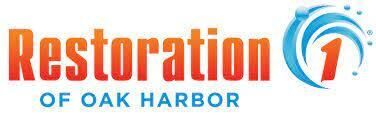Foster Parent Trainings
All foster parents are required to participate in relevant training each year, an average of 12 hours per year for traditional and respite families or 30 hours per year for therapeutic families. This is a great opportunity to gain parenting skills, better understand the effects of trauma, and meet other local foster parents. Below is a list of online and upcoming trainings that count towards your ongoing requirements.
To browse additional opportunities through Alliance for Child Welfare, click here. You may also sign up for their email list to receive updates about upcoming trainings in your area.
If you participate in an online training video that does not provide a certificate, check with your Youthnet licensor to be sure it qualifies for training credit. If it does qualify, please complete a Video Training Worksheet to receive credit. (one per caregiver)
Featured Trainings
- "Three Guiding Truths": In this hour-long video, foster and adoptive parent Tif Junker shares the three guiding truths for building regulation and resilience in children with significant trauma related needs.
Online Trainings: Any Time At Your Own Pace
- "Adoption Support": (0.75 hours) Find answers about how and why adoption support services are offered, what adoption support services exist, and how to access them.
- “Car Seat Safety”: (0.5 hours) Skills focus on how to select, fit and install the correct seat each time you need to transport a child.
- “Connecting: Sexual Orientation and Gender Identity & Expression”: (2 hours) Learn about fundamental facts and terms about LGBTQ+ children/youth, and learn how to promote the health and well-being of children/youth in care.
- "Effects of Abuse and Neglect on Child Development": (30 minutes - 3 hours)This five-session course explores the principles of child development across the age ranges, broken into milestone increments.
- "Identifying and Supporting Commercially Sexually Exploited Children": (1.5 hours) Identify and support youth who are at risk for or are being commercially sexually exploited.
- “Infant Safety and Care”: (3 hours) Understand the ways that the 0- to 12-month-old population is most vulnerable; has their own language and development; and requires specific knowledge and skills to create and maintain safety and care.
- "Medication Administration for Caregivers": (0.5 hours) Understand the correct way to administer, log, store, and dispose of medications.
- "NAMI Basics Course" (18 hours) NAMI Basics is a 6-session education program for parents, caregivers and other family who provide care for youth (ages 22 and younger) who are experiencing mental health symptoms.
- "Prudent Parenting": (0.75 hours) This course covers the parenting decisions that fall to the Caregiver according to the Prudent Parent Law.
- "Preparing Youth for Transitioning to Adulthood" (0.5 hours) As a caregiver you play a key role in helping youth in your care transition into adulthood. During this course you will review the impact of childhood trauma on foster youth. You will explore the rights of youth in care and recognize your responsibilities for insuring those rights are met. You will explore ways to engage youth in conversations and activities in your home and community to develop life skills for launching into adulthood.
- “So You Have a New Placement ... Now What?”: (3 hours) This class gives an overview of regional paperwork and policies. This is an excellent class for both new and experienced caregivers.
- "Caregiving for Children with Sexual Behavioral Concerns": (4 hours)
- "Caregiving for Children With Physically Aggressive Behavior Concerns": (4 hours)
- "Youth Missing from Care": (1 hour) This course is designed to provide caregivers with the information needed to identify, support, and intervene with youth who are living in care and are at risk of running away.
Webinars: Online at a Specific Date & Time
- Advanced Adoption: The Effects of Trauma and Loss on Adopted Children (2.5 hours)
Are you considering or currently pursuing adoption? Do you have a basic understanding and knowledge of the adoption process but want further knowledge? If so then this is for you. This training will help you identify your ideals and goals as an adoptive parent. This training will prepare you to recognize the issues related to trauma, grief, and loss for adopted children. You will understand the various types of attachment and how to work with you and your child’s attachment style. You will leave with a better understanding of the resources available to adoptive parents and how to access supports for your family. - As They Grow: The Drug Impacted Child (6 hours)
This 6 hour focused topic training for caregivers will focus on how children with substance abuse in their life have an increased chance of experiencing many effects, such as poor social, cognitive and emotional development, physical, mental and health issues, depression, anxiety, concentration and learning difficulties, trouble controlling their responses, as well as other traumatic issues. The goal of this workshop is to identify and address the impacts drugs have on children and setting up a successful environment and coping skills. The takeaway from this training is feeling empowered to care for a drug impacted child as they grow through childhood, teenage years and beyond. - As They Grow: The Drug Impacted Infant and Toddler (6 hours)
This 6 hour focused topic training for caregivers provides an in-depth exploration of Drug Impacted Infants and Toddlers. The training focuses on how to identify and address the impacts drugs have on infants and toddlers; how to recognize symptoms; set up a successful environment and work together with the team in providing care for the child. The takeaway from this training is feeling empowered to care for a drug impacted Infant as they grow through infancy, toddler and preschool - Attention Deficit Hyperactivity Disorder (6 hours)
This 6-hour focused topic training for caregivers develops an understanding of Attention Deficit Hyperactivity Disorder (ADHD) as presented in DSM 5 and alternate behavioral descriptions from Daniel Amen MD. The training also covers the common developmental course of ADHD and a 7 Step Intervention pathway for home and school success. - Behavior Management Tools for Foster Parents and Caregivers (6 hours)
This 6 hour focused training for caregivers provides a foundation for understanding Adverse Childhood Experiences (ACES) and challenging or escalating behavior among children in out-of-home care. The training provides specific behavior management skills for caregivers to deescalate and manage behavior including trauma informed caregiving, authoritative parenting, therapeutic environments, engagement, and more. This workshop will give caregivers practical tools to help manage behaviors such as: oppositional defiance, property damage and juvenile delinquency, attention deficit hyperactivity, running away, power struggles and escalated tantrums, and verbal and physical aggression. - Compassionate Parenting (6 hours)
Would you like more compassion in your life? In your parenting? For you? For your children? This training is for you! Discover what compassion really is, how it starts by being compassionate with ourselves and see the positive results with our families and others. You’ll hear about and learn the roadblocks, hurdles and challenges that often prevent this kind of parenting and discover ways to move through them so you, and your children, win! Topics include: separating the children’s behavior from who they are; how to not take what they do or say personally; being compassionate with ourselves supports positive results with our families; learn the roadblocks, hurdles, and challenges of this type of parenting and how to move through them; the role self-esteem plays in all of us. You’ll learn real world concepts that work! - Fostering Children & Youth Through Transition, Grief & Loss: Helping Children With Their Feelings (6 hours)
Grief for children is the disruption of a bond, and in any foster situation, significant bonds have been disrupted or broken. This makes foster children more emotionally vulnerable when other losses occur. A friend may move, a pet dies, or a teacher goes on maternity leave. All these events placed the foster child in a very precarious position. This training will help you to understand that a lot more is on their emotional plate then on other children. You will learn how to address and support the child in a time of transition. This training will cover: the stages of grief; condensed developmental understanding of how children grieve at different ages and understandings; how to communicate with children; how transition, grief and loss might trigger old feelings for the child and caregiver; developing a plan and skills to support children in times of transition. - Honoring Their History: Memory Preservation for Children in Care (2 hours)
This webinar introduces the idea of memory preservation as central to a child's welfare, because it provides many benefits to emotional and mental health. You will be guided through how to start the process and the different methods of preservation, and will be encouraged to think about which would work best for you and your family. You also will explore a variety of ways to gather information from both the child and other important adults in the child’s life. At the close of this training, you will have an individual plan for documenting and preserving memories in a way that honors the child's past and present. - Introduction to Adoption from Foster Care (3 hours)
This 3-hour in-service training for caregivers provides an introduction to the adoption process including the homestudy, adoption support, the legal process and steps to adoption. This training is open to all participants: those who have not taken Caregiver Core Training, those who have, and those who are using the training as a field placement. This training helps caregivers consider their decisions around public and private agencies and whether to foster to adopt or pursue adoption only. The focus of the training is understanding the process including the emotional impacts of commitment, changing your family, grieving and attachment. The training will also give information about: open adoptions, the placement process, resources, and more. - Introduction to Positive Discipline (2 hours)
Introduction to Positive Discipline is a 2-hour in-service level training for foster, kinship and suitable adult caregivers. This introductory training will help caregivers learn the basic parenting approach of the Positive Discipline model by providing several group activities and discussions based in real life scenarios. Positive Discipline focuses on teaching valuable social and life skills to children instead of using any form of punishment, rewards, praise, permissiveness or logical consequences. Positive Discipline focuses on helping participants learn how to use effective discipline that is kind and firm, creates connection before correction, is empowering and encouraging to children to believe in their own capability, and keeps the joy in caregiving. - Invitation to Aggression Replacement Training (6 hours)
This 6 hour focused topic training for caregivers teaches what drives aggressive behavior and develops skills required to give youth a chance for success. Caregivers will learn skills to teach the children in their care increased moral reasoning, how to replace antisocial behaviors with positive alternatives, and how to respond to anger in a nonaggressive manner. - Knowledge and Skills to Help Children Heal (6 hours)
This 6-hour focused topic training for caregivers provides an in-depth exploration of the emotional trauma that children in out-of-home care have been through and how it can impact them. The training focuses on strategic and practical skill building for caregivers to foster healing and resiliency in the children for whom they care. The takeaway from this training is how to identify and address the emotional wounds of the children in your care so healing can begin. - Paper Trail: Documentation Training for Caregivers (1.5 hours)
To remember an idea, you might write it down. At an event, you might take a picture. As a caregiver, you are the custodian of the milestones and memories of a child’s life for the whole welfare team, so understanding how and why to document elements of that is crucial. This 1.5-hour webinar training will cover best practices for documentation to prepare and support you and others involved in the child’s life, with the ultimate goal of sharing information, concerns and progress. Focused learnings around why documentation matters are central to the course – specific scenarios help translate ideas to real-life examples. You also will leave with an individualized plan for what, when and how to document, based on the process that will work best for you. - So You Have A New Placement ... Now What? (1.5 hours)
This 90 minute in-service webinar training for caregivers is intended for those who are ready for, or have received their first placement, or have a new placement after some time without placements. The course focuses on understanding and planning for new placements. The course addresses both the emotional elements to new placements and the practical details of requirements, paperwork, forms and expectations. Participants should leave with an understanding of what is expected during the first 30 days of a new placement including: mileage, reimbursements, visitation, court reports, documentation, medical care, accessing services, and how to get their questions answered as new issues arise. - Suicide Prevention LEARN® Training by Forefront (3 hours)
LEARN is a suicide awareness training that helps participants identify and act on signs of suicide. The training was developed in the School of Social Work by noted Suicidologist, Dr. Jennifer Stuber, and is based on best practices outlined by the federal Substance Abuse and Mental Health Administration (SAMHSA). LEARN® is designed to empower individuals to help others move in the direction of hope, recovery, and survival. Presenters for this training are contracted and trained by Forefront Suicide Prevention. - Talking with Children about Race (6 hours)
Recent research has shown that children have very complex understandings of differences and how they make meaning of stereotypes. Far from being color-blind, most children are aware of how their own skin color is an advantage or disadvantage. They also judge their peers based on these differences¬—even though many adults believe young children in today’s generation don’t stereotype. Because of this, it is important to give children anti-bias messages, through actions and words that actively counter what they are internalizing and witnessing in the world. In this workshop we will explore how children and youth learn and practice racism and privilege. Participants will learn strategies to for acting on teachable moments and ways to create counter narratives. - Understanding and Managing Caregiver's Own Emotions and Self Care (6 hours)
As a caregiver the very best thing you can do for those who depend on you is to take care of yourself! Caregivers are expected to welcome children who have been traumatized into their homes and invest emotionally and physically into the children. Caregivers are expected to separate gracefully when the time comes for the children to move on. The caregiver’s responsibilities and personal sacrifices in caring for someone else can be challenging for even the most experienced caregivers. This 6 hour focused topic training for caregivers teaches how to reduce your stress, find more energy and improve your resilience while you care for difficult children and demanding expectations. The course includes opportunities for self-reflection and insight, short term goal setting and practical self-care and stress reduction techniques. - Verbal De-escalation (6 hours)
The goals of this workshop include: developing skills to manage children with behavioral challenges in a non-violent crisis intervention manner; skill building for empathetic listening; identifying children’s needs and creative strategies to help children manage their emotions in difficult situations.
Videos, Movies, Podcasts, Books, and More
Support Groups
Some support groups may count for training hours. If a support group provides a training certificate, please send this to your Licensor for credit.








